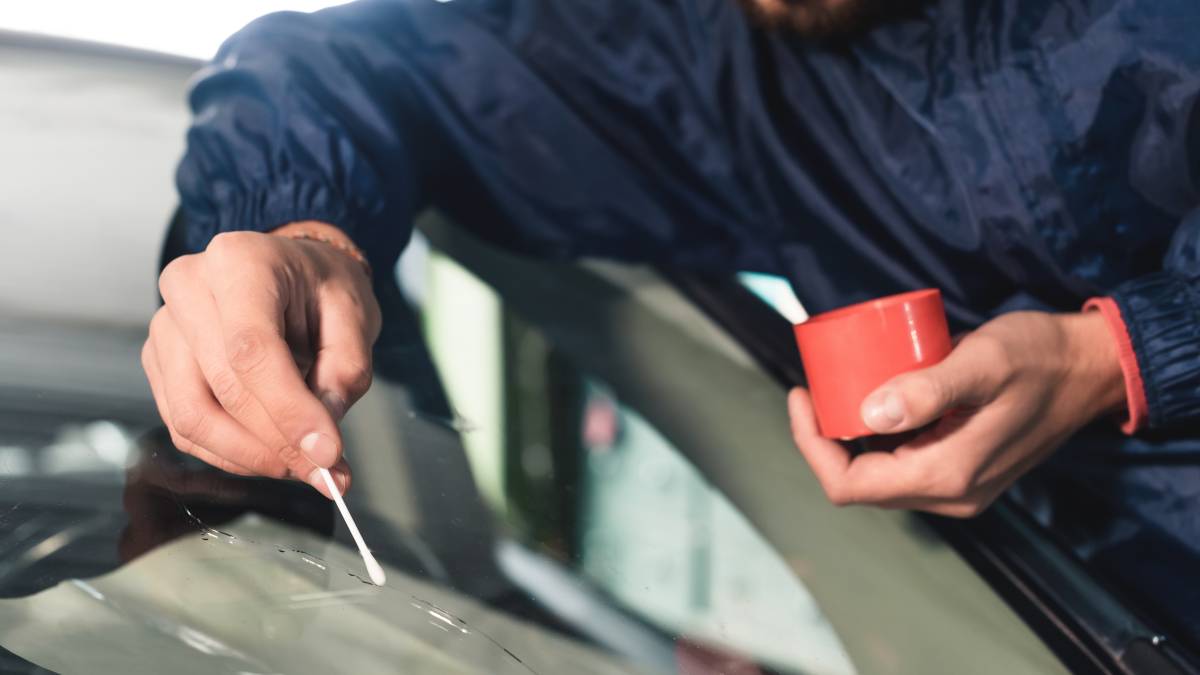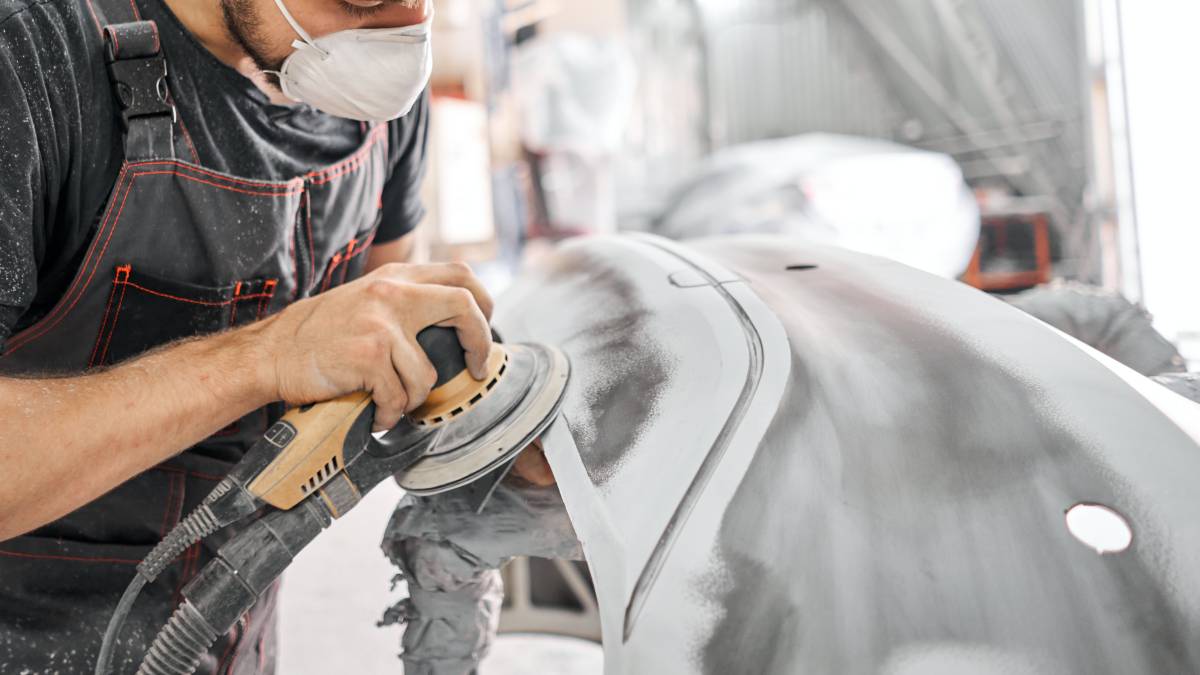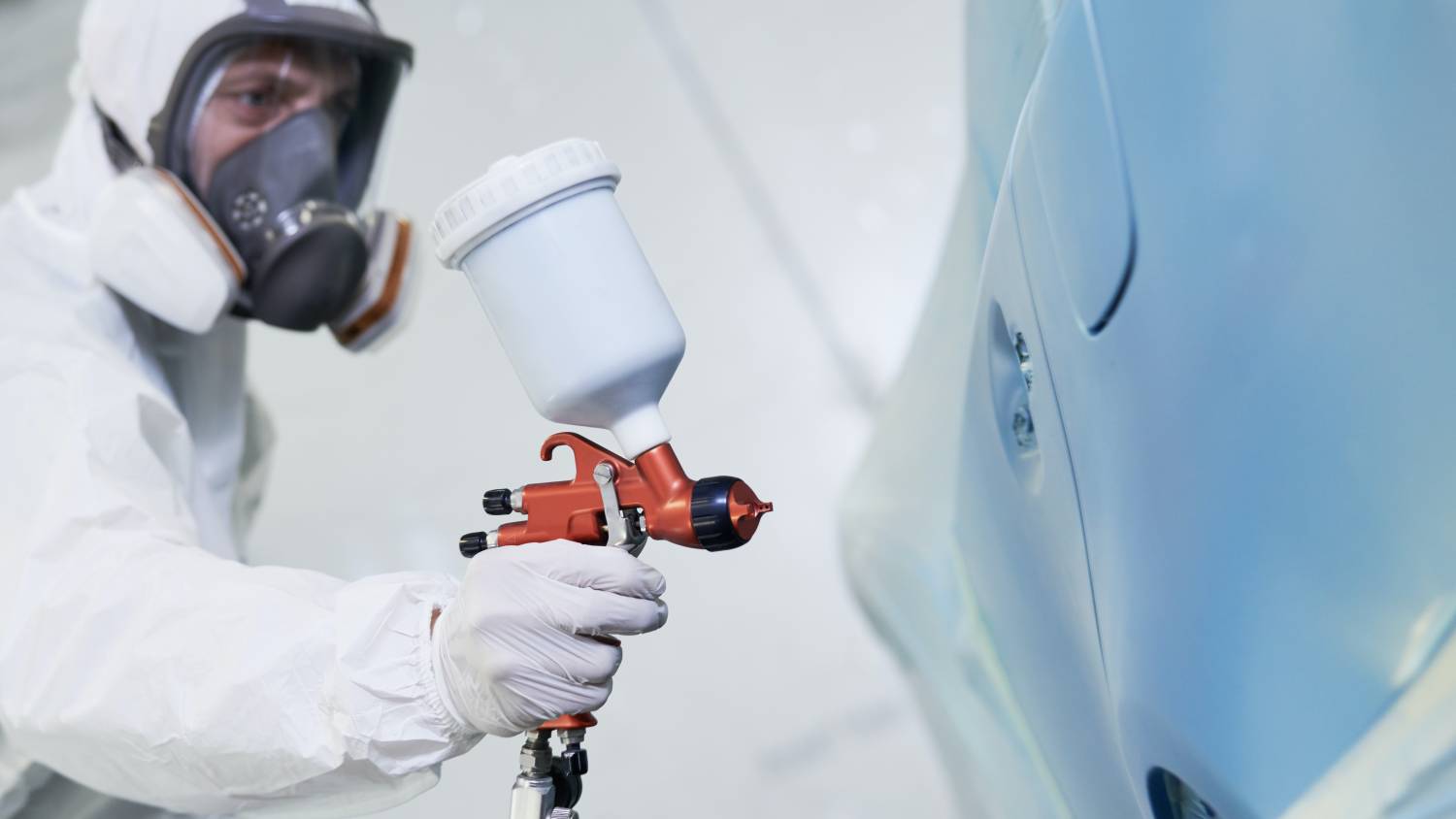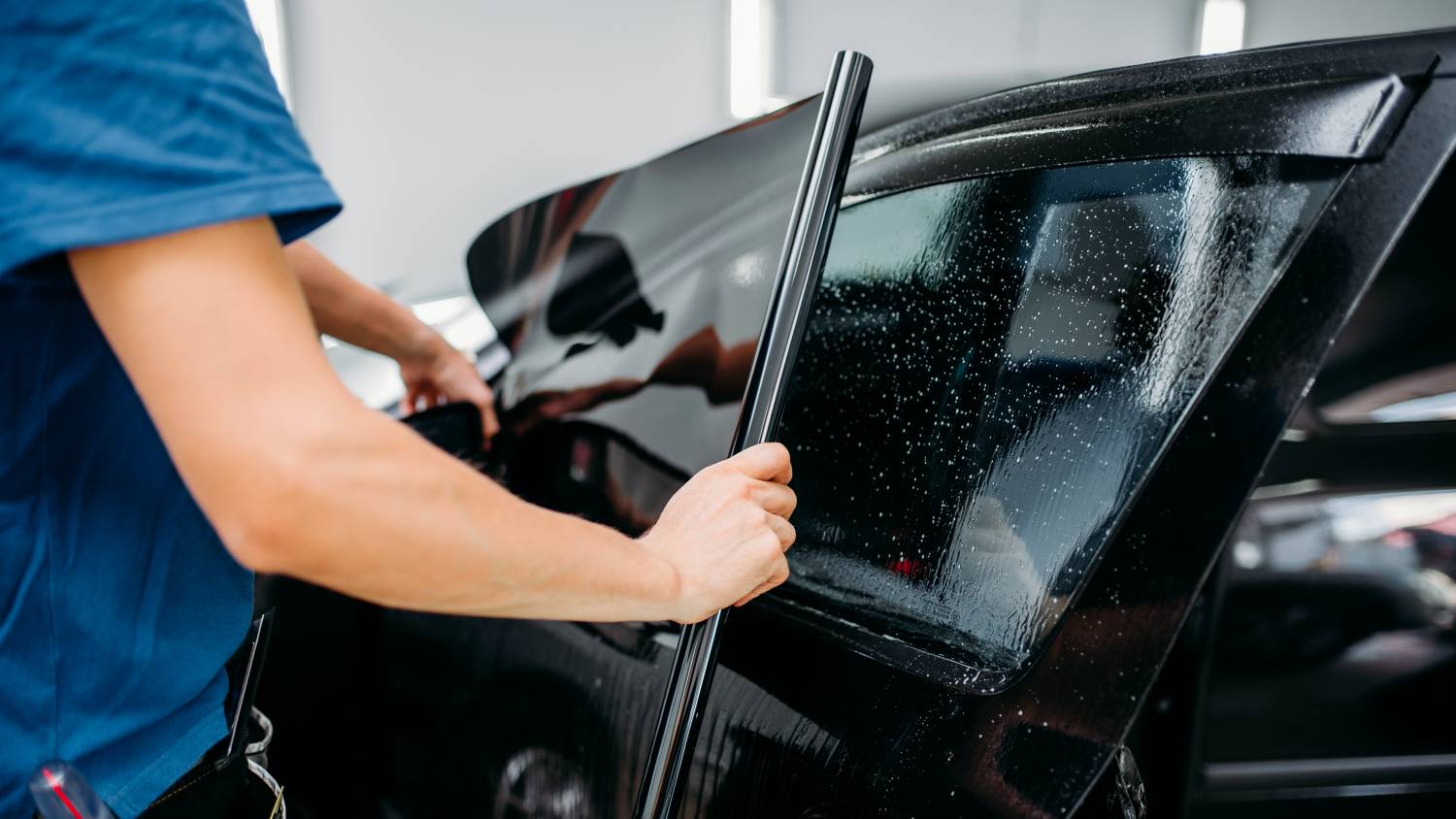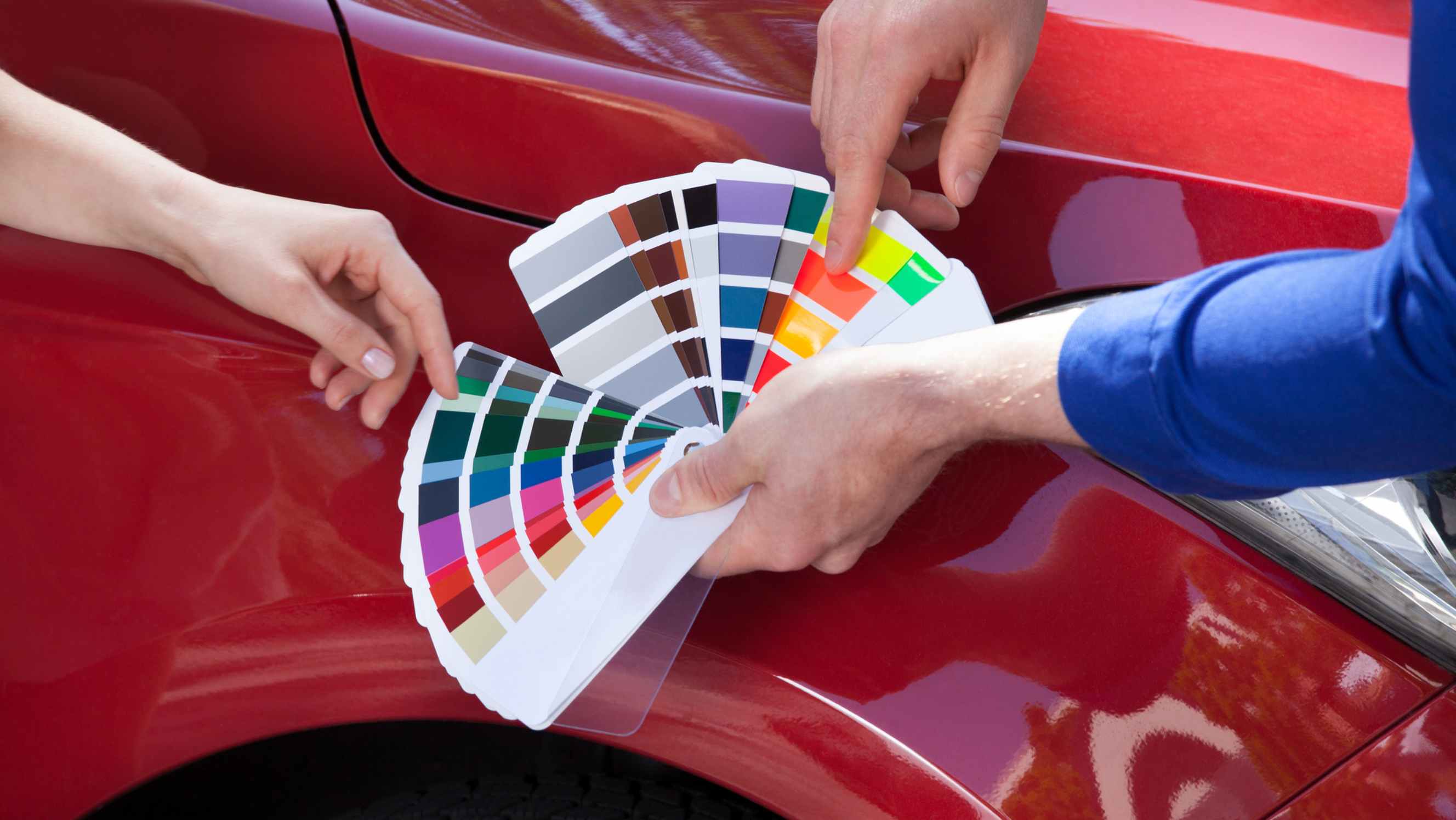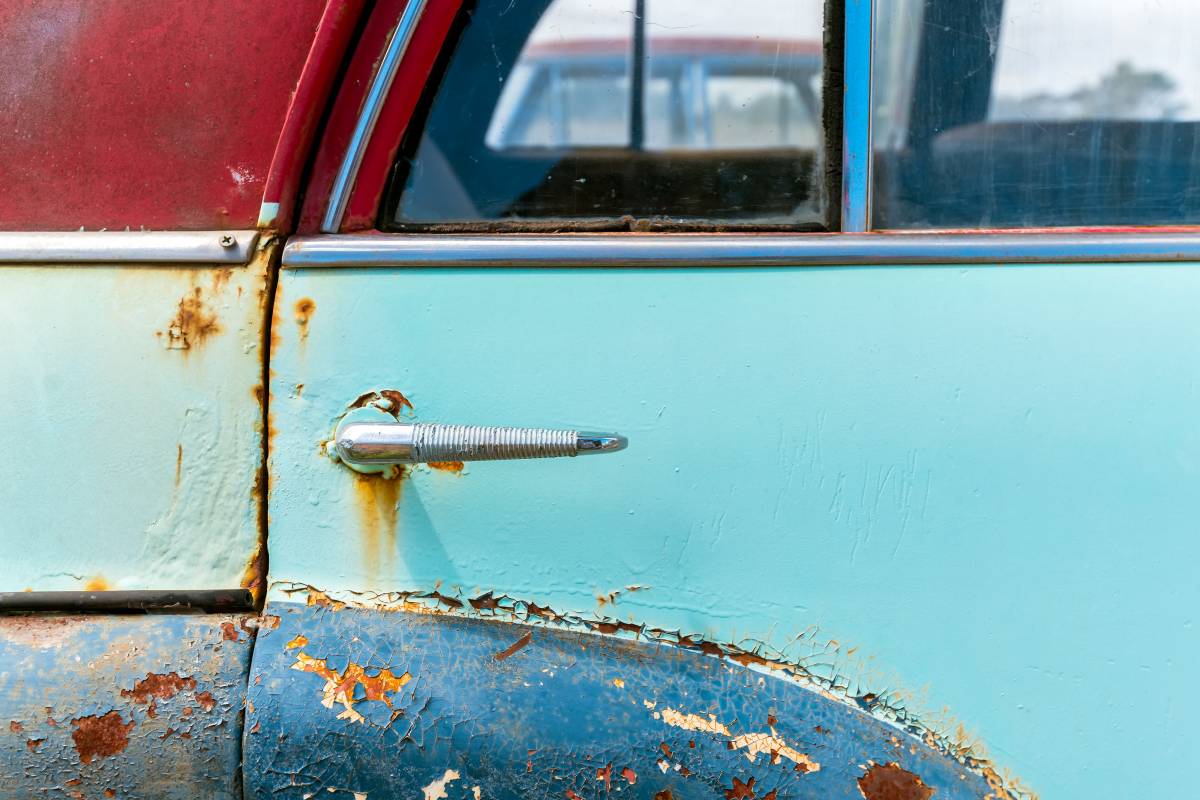- Home/
- Costs/
- Car Wrapping/
- Car Wrapping Cost
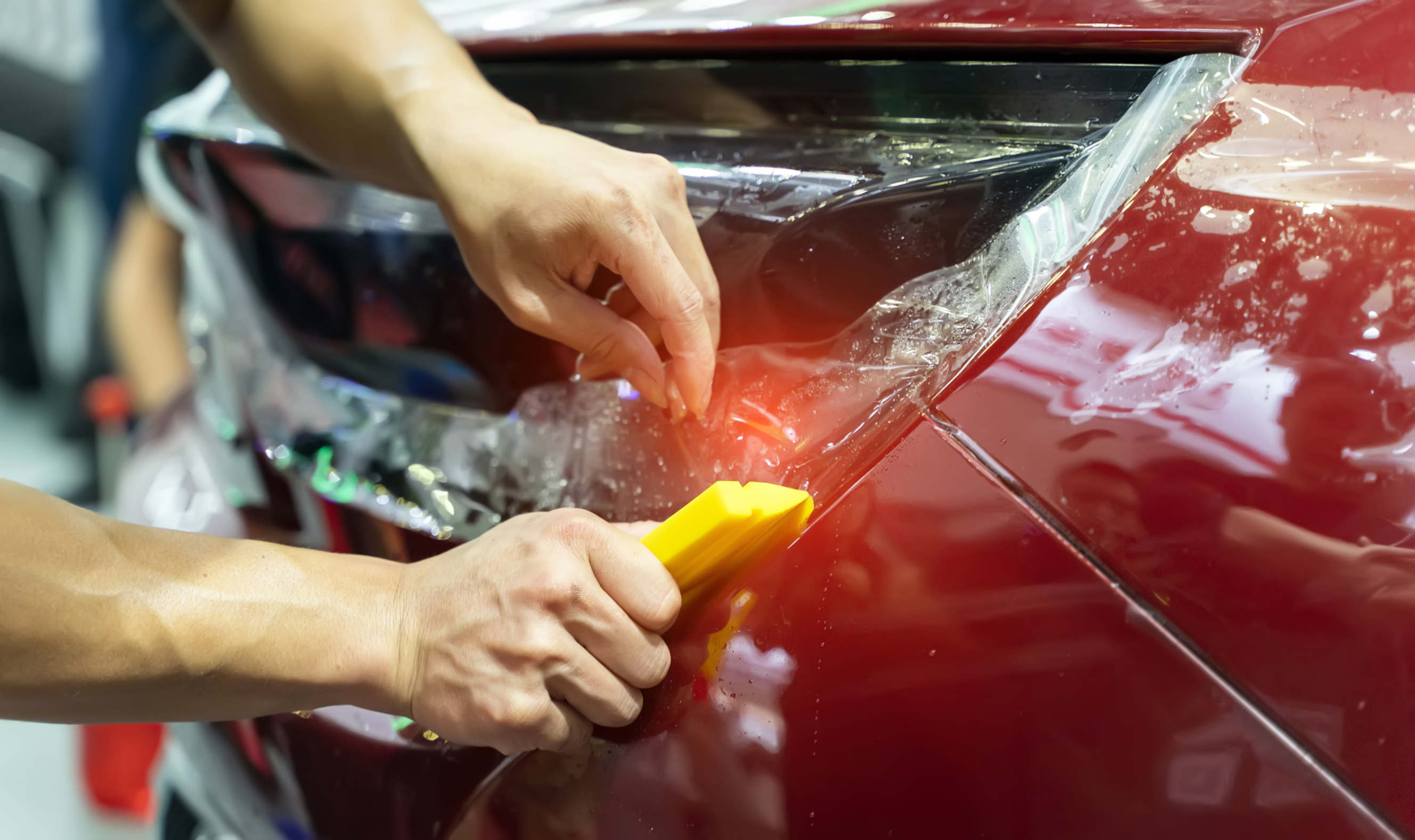
How much does car wrapping cost in the UK?
Get a free quotePost to find a price. It's free and only takes a minute.
Average cost of car wrapping
£950 - £5,000
low
£950
median
£2,975
high
£5,000
Last Updated on
Key Facts
Car wrap costs in the UK are between £950 and £5,000, including labour. The total price depends on car size, vinyl type, and design complexity.
Partial wraps generally cost less, ranging from £500 to £1,400, compared to full car wraps.
In the UK, you must notify the DVLA and update your registration if you change your vehicle’s colour with a wrap, as it’s considered a modification.
Car wrapping is a fantastic way to give your vehicle a fresh, custom look without committing to a permanent paint job. Whether you’re aiming for a unique style or promoting a brand, car wraps serve as the perfect middle ground. However, you need to first weigh your budget before deciding.
The average car wrapping cost in the UK typically falls between £950 to £5,000. Let’s explore price variations and the factors that drive them further to guide you in choosing the best wrap for your needs and budget.
What are the average costs of car wrapping in the UK?
If you’re wondering how much does it cost to wrap a car in the UK, the numbers can vary quite a bit depending on where you are. Here’s a table summarising the average costs of full car wraps across some of the major cities:
| State/City/Area | Average cost of full car wraps* |
|---|---|
| London | £950 to £2,500 |
| Manchester | £1,900 to £5,000 |
| Birmingham | £2,300 to £3,000 |
| Yorkshire | £1,000 to £2,000 |
| Glasgow | £1,500 to £3,000 |
| South Hampshire | £1,700 to £2,500 |
| Liverpool | £1,500 to £4,100 |
| Newcastle | £1,700 to £2,000 |
| Nottingham | £3,000 to £4,000 |
*Inclusive of labour and wrap, excluding GST
Car wrap costs in London range from £950 to £2,500, but the quotes can be higher for more intricate designs. Manchester’s range falls between £1,900 and £5,000, reflecting the demand for vehicle customisations in the area. In Birmingham, you can expect prices to range from £2,300 to £3,000, so it’s a bit more budget-friendly.
Yorkshire remains on the lower end, with costs ranging from £1,000 to £2,000. In contrast, Glasgow’s car wrapping average costs vary higher from £1,500 to £3,000.
South Hampshire’s car wraps fall between £1,700 and £2,500, based on material and wrap coverage. Liverpool has wrap costs ranging from £1,500 to £4,100, with higher rates often linked to luxury finishes.
In Newcastle, you can expect prices between £1,700 and £2,000, which are relatively cheap for most wrap types. Lastly, Nottingham has some of the highest car wrap costs, ranging from £3,000 to £4,000, often due to specialised services in the locale.
What factors affect the costs of car wrapping?
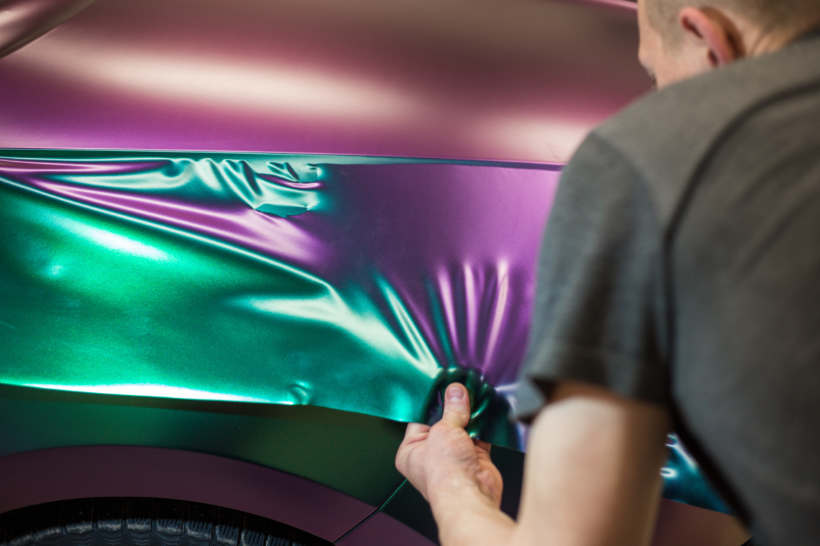 A professional carefully applies a colorful car wrap. (Source: iStock)
A professional carefully applies a colorful car wrap. (Source: iStock)
When it comes to car wrapping, there are several variables that can significantly influence the final price, from the type of vinyl you choose to the complexity of the design. Let’s dive into the specifics so you can better understand what drives these costs and make an informed choice.
Size and type of vehicle
| Type of vehicle | Estimated costs* |
|---|---|
| Small passenger car | £1,100 to £3,200 |
| Medium passenger car | £1,600 to £4,100 |
| Large passenger car | £2,100 to £4,600 |
| 4WD car | £2,400 to £4,100 |
| Small to mid-sized vans | £1,500 to £4,800 |
| Large, jumbo, and box vans | £2,100 to £5,800 |
*Inclusive of labour and wrap, excluding GST
The size and type of your vehicle play a huge role in determining car wrapping costs. Smaller cars like the Nissan Leaf or Fiat 500 require less vinyl, which means lower material and labour expenses. Their simpler body shapes also make them easier to wrap, resulting in more affordable pricing, usually between £1,100 and £3,200.
Medium and larger passenger cars, like the Citroen e-C4 X or Audi A3, need more vinyl and take longer to wrap due to their size and complex shapes. These factors drive up the cost, putting the price range for medium cars between £1,600 and £4,100, and for large sedans around £2,100 to £4,600.
If you’ve got a 4WD, expect even higher costs. Such vehicles, like the Toyota Land Cruiser, require more wrapping due to their size, usually costing between £2,400 and £4,100.
Small to mid-sized SUVs, like the Hyundai Tucson and Lexus NX, need a lot more material and labour too, so costs often reach £4,800. Meanwhile, the rugged features and larger surface area of large SUVs and box vans make them some of the most expensive vehicles to wrap. Prepare to spend around £2,100 to £5,800 if you’d like a full wrap.
Preparation and surface condition
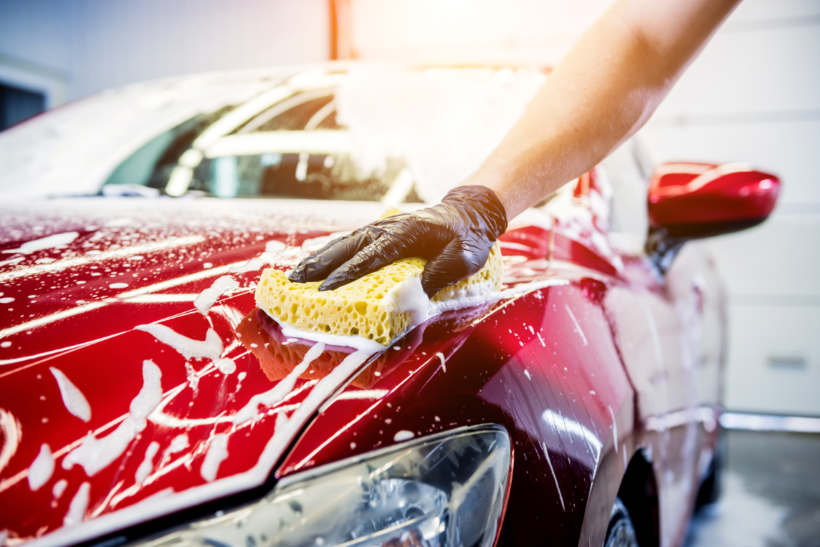 Prepping the car surface – a clean start for perfect wrapping. (Source: iStock)
Prepping the car surface – a clean start for perfect wrapping. (Source: iStock)
Prepping and ensuring the good condition of your car’s surface significantly impacts wrapping costs. Car inspections are a critical first step, as this allows wrap installers to assess the paint quality and identify areas needing attention. Just like you would when preparing a car for a paint job, you need to ensure the vinyl adheres smoothly and lasts.
First, the car must be thoroughly cleaned to remove any dust, dirt, oil, or residue. High-quality wrap shops use specialised degreasers or isopropyl alcohol to ensure that there are no contaminants left. After all, even minor residues like pollen or sap can impact the vinyl’s ability to stick to the car properly.
Installers often use clay bars or microfibre cloths for a spotless surface. This adds to the preparation time and cost, especially if the vehicle has been exposed to harsh outdoor conditions.
The paint condition is also important. Peeling or flaking paint must be repaired before wrapping to avoid lifting or bubbling. More intensive preparation may be required for cars with older or oxidised paint. Brittle paint could come off with the wrap, making minor paint repairs necessary to protect both the vehicle and the longevity of the wrap.
Repainted cars also need special handling. Freshly painted vehicles should ideally wait at least a month before being wrapped to prevent peeling or bubbles.
Textured surfaces, plastic trims, or other non-metal parts present additional challenges. These areas often need special adhesive treatments, which add to both the time and the cost of preparation.
Finally, environmental conditions are crucial factors to consider. High humidity or extreme temperatures can affect the adhesive’s performance. That’s why many wrap shops operate in climate-controlled environments to ensure the best possible conditions and minimise the risk of issues down the line.
Type of wrap material
| Type of wrap material | Estimated costs* |
|---|---|
| Gloss | £1,000 to £2,900 |
| Matte/Satin | £1,400 to £3,100 |
| Chrome | £2,700 to £3,800 |
| Digital Print | £1,600 to £3,300 |
*Labour and wrap, based on the wrap needed to fully cover a small to large passenger car
A vinyl-wrapped car’s cost in the UK depends largely on the type of material you choose. Standard glossy wraps are the most affordable, ranging from £1,000 to £2,900, depending on the size of your vehicle. They offer a great balance of cost and visual appeal.
A matte or satin wrap is pricier, starting around £1,400 and going up to £3,100. These provide unique looks but also require a more careful application.
A chrome vinyl wrap ranges from £2,700 to £3,800 because it adds a unique touch to the vehicle, giving it a rugged or luxurious look. However, they require frequent cleaning and careful maintenance to preserve their appearance, which can add to the overall upkeep costs.
Another option is digital print which is generally more affordable than the cost of vinyl wrap if you’re planning to cover just a portion of the vehicle. Ranging from £1,600 to £3,300, these are a good solution for those looking for a short-term change or hyper-personalised design. You can either send in your own artwork or branding to be printed or pay extra for the shop to lay it out for you.
Complexity of the design
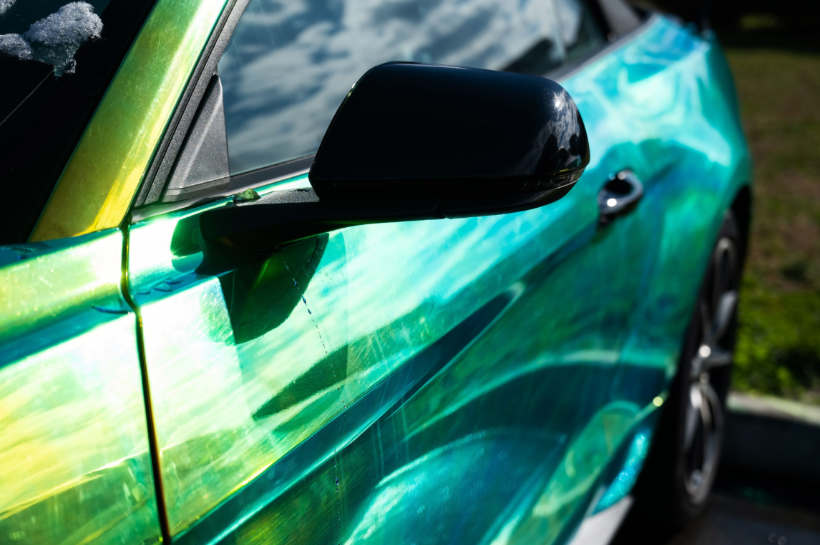 A detailed car wrap with vibrant colors and reflections. (Source: iStock)
A detailed car wrap with vibrant colors and reflections. (Source: iStock)
The complexity of the design can have a big impact on the overall cost of wrapping a car. Simple, solid colours are the most affordable, as they require minimal precision during installation. Single-colour wraps like gloss black or matte grey are popular choices for those wanting a style change that doesn’t break the bank.
Intricate patterns or custom graphics add to the base cost because of the extra time and skill required. Designs like racing stripes or camouflage need specialists or a team to create the template and installers to align the patterns precisely across all panels.
Layered or multi-tone wraps also increase costs. These wraps involve multiple layers of vinyl to achieve shadowing or accent effects, requiring each layer to be applied with perfect alignment. This level of customisation is popular among car enthusiasts who want something distinctive without going for a full custom artwork wrap.
Wrapping coverage
| Wrapping coverage | Estimated costs* |
|---|---|
| Partial wrap | £500 to £1,400 |
| Full wrap | £1,300 to £4,600 |
| Lettering and graphics | £200+ |
*Labour and wrap, considering a small to large passenger car
Unlike a car painting job, wraps can easily be removed or replaced. This makes them ideal for those looking to switch things up or for businesses needing flexible branding options. But the extent of the wrapping coverage is still something to think about, especially when you’re deciding between respraying, painting, or wrapping your vehicle.
A full car wrap costs anywhere from £1,300 to £4,600. This includes every visible part of the car, from the hood to the bumpers.
Partial wraps are more budget-friendly. A quarter wrap or half wrap costs anywhere between £500 and £1,400, depending on the areas covered. Popular options include roof wraps or accent wraps on the hood, mirrors, or fenders, which allow for customisation without the full expense of whole car wrap costs. This is also used to make repaired car surfaces look brand new again.
Lettering, graphics, or smaller accents can be an even cheaper option, starting at around £200. These are perfect for minor detailing or adding logos and branding elements to specific areas, so they’re a common choice for commercial vehicles.
Geographic location
Where you live has a big impact on how much you’ll pay for a car wrap as well. Major cities with a high cost of living and a greater demand for skilled installers drive up the prices. The demand is often greater in these districts, and top-rated installers charge a premium.
In contrast, rural or suburban areas often have lower car wrap costs. This is partly because of reduced operational costs for shops, but it may also mean fewer services are available. If you live in a smaller town, you might need to travel to a nearby city to get a reputable car wrapping job done, which can add travel expenses to the overall cost.
In regions with a strong car culture or where vehicle customisation is popular among car owners, prices can vary widely. High competition in these areas can sometimes lead to promotional discounts, especially during certain seasons. However, in areas with limited wrap shops, you might face higher prices and longer wait times due to less competition and availability.
What are some ways to save on car wrapping?
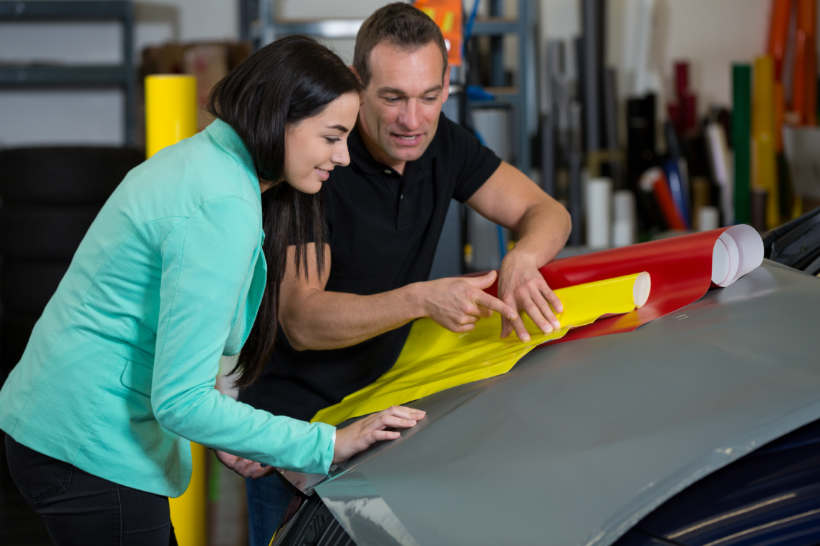 Choosing smart colors and materials can save on car wrap costs. (Source: iStock)
Choosing smart colors and materials can save on car wrap costs. (Source: iStock)
If you want to save on car wrapping without compromising too much on quality, here are some practical tips to help you lower costs while still achieving a great result:
Opt for a partial wrap instead of a full wrap: Partial wraps are significantly cheaper, often costing between £500 and £1,400, depending on the coverage area. By wrapping only specific parts of your vehicle, like the roof, hood, or mirrors, you can get a custom look without the high cost of a full wrap.
Choose standard vinyl instead of specialty wraps: Standard vinyl, like gloss, matte, or satin, is generally more affordable than specialty options like chrome. These options still offer a wide range of colours and finishes, so you can still style your vehicle without paying a premium for uncommon or specific materials.
Select a simple, single-colour design: Single-colour wraps are easier to apply, reducing both labour time and installation costs. Choose a classic matte black or gloss white to save money and maintain a timeless look that’s easy to keep in good condition.
Shop around and get multiple quotes: Contact several wrap shops in your area to compare prices and services. While the cheapest option may not always be the best, comparing quotes helps you find a balance between quality and affordability.
Schedule wrap installation during off-peak seasons: Many wrap shops offer discounts during off-peak times, such as winter, when demand is lower. Prices tend to rise during warmer months or before major auto events when shops are busiest.
What should you look for in a professional car wrapping service?
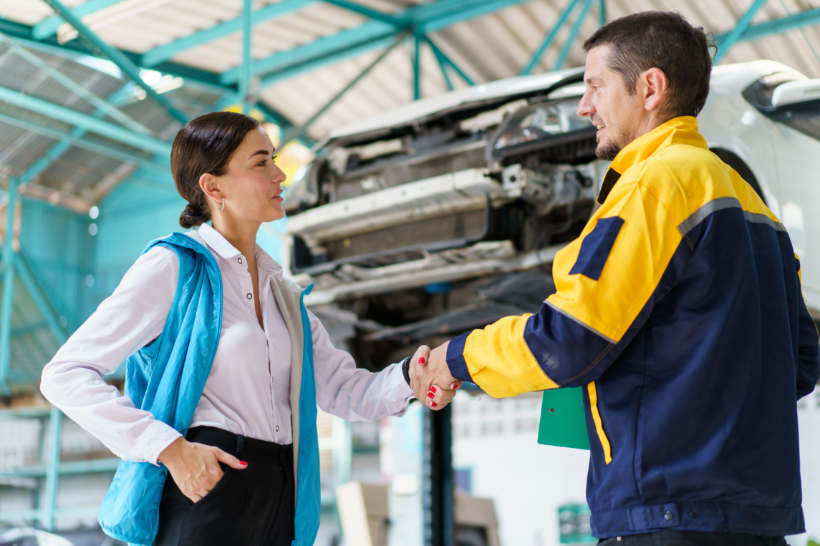 Discussing quality and expertise for professional car wrapping. (Source: iStock)
Discussing quality and expertise for professional car wrapping. (Source: iStock)
You don’t just need to find the cheapest car body wrap cost—you also need to consider the quality of work, materials used, and the experience of the installer. Here are the important things to look for to get the most out of your car wrap investment:
Experience and portfolio
A service provider with several years of experience is more likely to deliver high-quality results. They’ve probably dealt with different vehicle types and complex wraps, so they’re better equipped to handle your specific needs.
Always ask to see a portfolio of their past work. A reputable shop should have plenty of examples to show, either online or in person. Reviewing their portfolio will help you assess their expertise and determine if their style aligns with your vision.
Quality materials
High-quality wrap shops use reputable vinyl brands like 3M, Avery Dennison, or Oracal, which are known for durability and adhesive strength. Cheaper options might seem appealing for a low-cost car wrap, but they often result in fading, peeling, or bubbling over time.
A good shop will also offer a variety of finishes, from gloss and matte to chrome or textured. Just make sure that they use UV-resistant materials if your vehicle will be exposed to the elements frequently.
Reputation and reviews
A professional car wrapping service should have a solid reputation backed by good reviews. Check platforms like Google, Yelp, and social media to see customer feedback and examples of their work.
Shops that regularly post their projects show confidence in their craftsmanship, and you can see what recent wraps look like. Look for consistent positive reviews from satisfied customers. Word of mouth and personal recommendations from people you trust are often the best indicators of quality as well.
Post a task for car wrapping on Airtasker
Transforming your car’s look with a high-quality wrap seems easy to achieve, but the perfect result lies in the experience of the installer. Instead of stressing over finding a reputable shop or dealing with inconsistent quotes, post a task on the platform and let a skilled Tasker do it for you!
On Airtasker, you can connect with car wrapping professionals who have extensive experience in vehicle wraps and car bodywork. You only need to set your budget, specify your needs, and select a Tasker to do it for you—all from the comfort of your home.
Don’t leave your car’s transformation to chance. Post a task today and find the expert that will give your vehicle the fresh new look it deserves.
FAQs on car wrapping costs
The best material for car wraps is high-quality vinyl from brands like 3M, Avery Dennison, and Oracal, known for their durability and finishes. Vinyl with UV and weather resistance is also ideal, as it’s designed to withstand the elements and lasts up to eight years with proper care.
Car wraps have a limited lifespan, typically lasting 3 to 7 years. Proper maintenance, including gentle hand washing, is crucial to extend their lifespan. Poor installation or low-quality vinyl can lead to issues like bubbling, peeling, or fading, especially if the paint beneath isn’t in optimal condition.
Yes, if you change your car’s colour with a wrap in the UK, you must inform the Driver and Vehicle Licensing Agency (DVLA), as it alters the vehicle’s registered colour. You can update this by modifying your V5C registration certificate, and there is no fee involved.
Find car wrapping experts, fast
Post a task
Related price guides
Related articles
